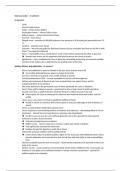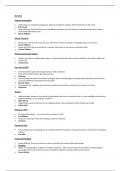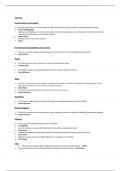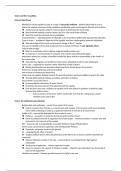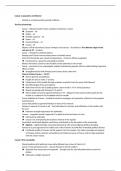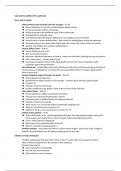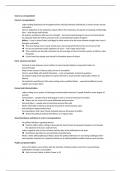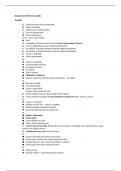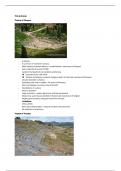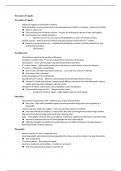OCR • Classics: Classical Civilisation
Latest uploads for Classics: Classical Civilisation at OCR. Looking for Classics: Classical Civilisation notes at OCR? We have lots of notes, study guides and revision notes available for Classics: Classical Civilisation at OCR.
-
277
-
2
-
25
Modules Classics: Classical Civilisation at OCR
Notes available for the following courses of Classics: Classical Civilisation at OCR
- A2 Unit CC10 F390 - Virgil and the world of the hero H408 82
- A2 Unit CC8 F388 - Art and Architecture in the Greek World 18
- A2 Unit CC9 F389 - Comic Drama in the Ancient World 1
- A2 Unit H403/31 Greek Religion H430/31 6
- Aeneid H40811 1
- AS Unit AH1 F391- Greek History from original sources H40831 2
- AS Unit CC2 F382 - Homer's Odyssey and Society 1
- AS Unit CC2 F382 - Homer's Odyssey and Society H408 5
- AS Unit CC4 F384 - Greek Tragedy in its context 9
Popular books OCR • Classics: Classical Civilisation

Walter Burkert • ISBN 9780631156246
Virgil • ISBN 9780140449327

Virgil, Robert Fagles • ISBN 9780141996332

Homer, Homer • ISBN 9780140447941
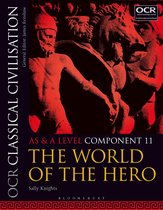
Sally Knights • ISBN 9781350015081

Robert Hancock-Jones, James Renshaw • ISBN 9781350015111
Latest notes & summaries OCR • Classics: Classical Civilisation
Notes on: - courtroom setting, partial delivery & subsequent publication of Verrine speeches, form, structure and style of Roman legal oratory - including devices such as anaphora, apostrophe, tricolon and hyperbole, ways in which the speech is typical of Roman rhetorical practice, themes of corruption, justice and necessity of upholding the state, portrayal of Verres and his corruption and how this is created
Scholarly views on Aeneid for A level classical civilisation. OCR- The world of the hero exam for 30 marker.
Scholarly views on Odyssey for A level classical civilisation . The exam World of The Hero. OCR
Notes on: Cicero’s ideas about the ideal state and how it had developed in Rome - role of concordia ordinum (’agreement of the orders’), ideal state of affairs as cum dignitate otium (’peace with dignity’), how his actions during his career can be rationalised with his political ideals, his attempt to reconcile senators and equites in concordia ordinum and the reasons why this failed, explanation of his relationships with and attitudes towards: optimates - including Cato, populares - i...
Notes on: - reasons for and significance of first triumvirate, his first consulship and its ‘popular’ programme, politics of the civil war ands Caesar’s reasons for pursuing it, his dictatorship, ‘anti-republican’ behaviour and attitude to the republic, his plans for ‘popular’ reform, reasons for his assassination, his relationships with other political figures - including Cicero, Cato, Pompey, Crassus and reasons for these
Notes on: - influence of stoic philosophy on Cato’s political life, Cato’s allegiance to the optimates and how this position affected his legal and political activities, his relationships with other political figures - including Cicero, Caesar, Publius Clodius Pulcher and reasons for these, his idealism compared to more pragmatic approaches to politics, his significance as a conservative in a changing political world
Notes on: - Cicero’s correspondents and his relationship to them, form, structure and style of Roman letter writing, extent to which the letters can be informal or formal in tone, the choices of language and devices which create this, recurring ideas and themes in letters and their relationship to Cicero’s life and political career, public/private nature of the letters and their history of publication The letters included: to Pompey, fam. 5.7 to Atticus, att. 2.18 to Curio, fam. 2.4 to ...
Notes on: - roman social hierarchy - patrician & plebeian families, nobiles, equites, idea of a novus homo, res republica and organisation of the state - including the offices of the cursus honorum, elections, tribal assembly, centuriate assembly, senate, government of the provinces, imperium (command), dictatorship, ideas and views of the populares (favouring the people) and the optimates/boni (aristocrats/good men), role and importance of patronage, amicitia (alliance) and inmicitia (personal ...
Notes on all the prescribe sources for the OCR A-level, with dates, where it was found and information
Notes on: - origins of tragedy and how it developed during the 5th century BC - including its relationship to satyr plays, the contribution of Aeschylus, Sophocles and Euripides, use of actors and the chorus, use of masks, costumes and props, common themes of tragedy, relationship between the cultural context and social matter of the plays, Aristotle’s theories about tragedies - including peripiteia (reversal of fortune), hamartia (tragic mistake) and catharsis (purging of emotions)

